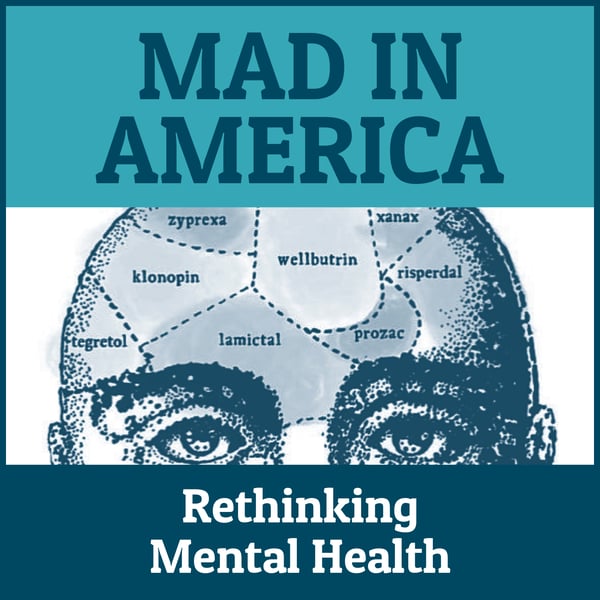Psychology, Personhood, and the Crisis of Neoliberalism: Jeff Sugarman on Theoretical and Critical Psychology
Mad in America: Rethinking Mental Health
Mad in America
4.8 • 201 Ratings
🗓️ 19 March 2025
⏱️ 54 minutes
🧾️ Download transcript
Summary
Jeff Sugarman is a distinguished scholar in theoretical and philosophical psychology, known for his work examining the psychology of selfhood, human agency, and the sociopolitical underpinnings of psychological science. A Professor Emeritus in the Education Department at Simon Fraser University, Dr. Sugarman has spent decades critically interrogating the ways mainstream psychology reflects and reinforces the ideologies of neoliberalism, shaping how we understand identity, mental health, and human development.
A past president of the Society for Theoretical and Philosophical Psychology (APA Division 24) and a former associate editor of The Journal of Theoretical and Philosophical Psychology and New Ideas in Psychology, Dr. Sugarman has played a key role in advancing critical perspectives in psychology. His extensive body of work includes Persons: Understanding Psychological Selfhood and Agency (2010), Psychology and the Question of Agency (2003), and The Psychology of Human Possibility and Constraint (1999)—books that challenge psychology’s tendency to isolate individuals from history, culture, and power structures.
In this interview, he explores the philosophical foundations of psychology, the psychological costs of neoliberalism, and why developing a critical psychology of education and mental health is more urgent than ever.
***
Thank you for being with us to listen to the podcast and read our articles this year. MIA is funded entirely by reader donations. If you value MIA, please help us continue to survive and grow. https://www.madinamerica.com/donate/
To find the Mad in America podcast on your preferred podcast player, click here: https://pod.link/1212789850
© Mad in America 2025. Produced by James Moore https://www.jmaudio.org
Transcript
Click on a timestamp to play from that location
| 0:00.0 | Welcome to the Madden America Podcast, your source for science, psychiatry, and social justice. |
| 0:14.0 | My name is Tim Beck. Welcome to the Madden America podcast. |
| 0:18.3 | So Jeff Sugarman is a professor emeritus in the education department at |
| 0:22.7 | Simon Fraser University at British Columbia, Canada. He has written extensively on topics |
| 0:28.3 | including the psychology of personhood and human agency, the sociopolitical influence of |
| 0:33.1 | psychology, the psychology of neoliberalism, and the development of a critical psychology of education. |
| 0:39.4 | He is a past president of the Society for Theoretical and Philosophical Psychology, which is the |
| 0:44.6 | Division 24 of the American Psychological Association. He's also a former associate editor of the Journal of Theoretical and Philosophical Psychology and the journal New Ideas in Psychology. |
| 0:56.6 | He has co-edited books, including the Wiley Handbook of Theoretical and Philosophical Psychology, |
| 1:02.2 | which was published in 2015, and Humanity's Approach to the Psychology of Personhood, which was |
| 1:09.3 | published in 2020. And he's co-authored the book's |
| 1:13.5 | Persons, Understanding, Psychological Selfhood and Agency, which was published in 2010, |
| 1:20.0 | psychology and the question of agency, which was published in 2003, and the Psychology of Human |
| 1:26.0 | Possibility and Constraint, which was published in 1999. |
| 1:29.9 | So welcome, Jeff. |
| 1:31.2 | Thank you so much for joining us today. |
| 1:33.2 | Nice to be here. |
| 1:34.1 | Nice to speak with you, Tim. |
| 1:35.8 | Over the past five or six years, I've been reading your writing, critiquing neoliberalism |
| 1:40.4 | and its relationship with psychology with a lot of interest. |
| 1:43.6 | And I have to admit that it's had a |
| 1:45.6 | pretty profound impact on my own thinking and writing about psychology. So I'm really excited for this |
... |
Please login to see the full transcript.
Disclaimer: The podcast and artwork embedded on this page are from Mad in America, and are the property of its owner and not affiliated with or endorsed by Tapesearch.
Generated transcripts are the property of Mad in America and are distributed freely under the Fair Use doctrine. Transcripts generated by Tapesearch are not guaranteed to be accurate.
Copyright © Tapesearch 2025.

